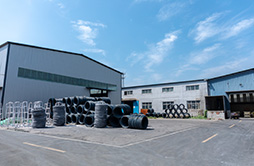7 16 bolts manufacturer
Nov . 13, 2024 13:42 Back to list
7 16 bolts manufacturer
The Landscape of Bolt Manufacturing A Focus on 7% Growth in 2016
The manufacturing industry is a cornerstone of the global economy, with various sectors playing pivotal roles in creating the products that allow modern society to function. Among these sectors, the production of bolts and fasteners is often overlooked, yet it is critical for a variety of applications, from construction to automotive industries. Notably, the year 2016 marked a significant uptick in growth within this niche, with reported advancements of around 7% in production volume and market demand.
Understanding the Bolt Manufacturing Industry
Bolts are essential components used to fasten materials together, predominantly in structural and mechanical applications. The manufacturing process involves several stages, including material selection, forging, machining, heat treatment, coating, and quality assurance. Diverse materials such as carbon steel, stainless steel, and even titanium can be utilized, depending on the particular requirements of the end-user. The versatility in applications and the necessity of strong, reliable fastening solutions ensure that the demand for bolts remains steady across various sectors.
The 2016 Boom
In 2016, the bolt manufacturing industry experienced a notable 7% growth. This increase can be attributed to multiple factors, particularly in the context of construction and automotive sectors, which saw considerable investments and project expansions during this period. The construction industry's revival in several countries, driven by urbanization and infrastructure development projects, created a surge in demand for high-quality fasteners, including bolts.
The automotive industry also significantly drove the demand for bolts in 2016. The shift toward electric and hybrid vehicles necessitated new fastening technologies to accommodate lighter materials and improved designs. As automobile manufacturers geared up to meet evolving consumer demands, their reliance on innovative and durable bolts surged, contributing to overall growth in the manufacturing sector.
Technological Advancements
Technological advancements played a crucial role in enhancing the operational efficiencies of bolt manufacturers. Automation and computerized systems became increasingly common, allowing for higher precision and reduced production times. Manufacturers adopted advanced techniques such as additive manufacturing and enhanced forging practices to produce bolts with superior performance characteristics.
7 16 bolts manufacturer

Moreover, the advent of Industry 4.0 principles, including data connectivity and analytics, enabled manufacturers to optimize their production processes continually. These innovations attracted new investments into the sector, resulting in an upsurge in manufacturing capacity and an improved ability to respond to changing market demands.
Environmental Considerations
With an increasing emphasis on sustainability, the bolt manufacturing industry began to incorporate environmentally friendly practices. Manufacturers started focusing on recycling efforts and reducing waste, while also exploring alternative materials that lessen environmental impact. These initiatives not only enhanced corporate responsibility but also attracted stakeholders interested in sustainable practices.
Market Forecast
Looking beyond 2016, the bolt manufacturing industry is expected to continue its growth trajectory. Factors such as increasing construction activities, a growing automotive sector, and the rise of renewable energy projects will likely contribute to sustained demand. Moreover, global trends towards industrialization and infrastructure investments in developing countries present further opportunities for growth.
As manufacturers adapt to evolving technological landscapes and environmental considerations, the future of bolt manufacturing appears promising. The 7% growth in 2016 marked not just a singular success but signaled an ongoing transformation within the industry. By embracing innovation and sustainability, bolt manufacturers can secure their place in the rapidly changing global market.
Conclusion
In summary, the bolt manufacturing sector serves as a fundamental pillar in support of the broader manufacturing industry. The 7% growth experienced in 2016 underscores the resilience and adaptability of manufacturers amidst changing market dynamics. As we look to the future, continued advancements in technology, a focus on sustainable practices, and increasing demand from key industries will likely propel the manufacturing of bolts into a new era of growth and innovation.
Latest news
-
High-Quality Panel Stud Bolt Reliable Panel Stud Bolt Factory & Suppliers
NewsJul.08,2025
-
High-Precision Fine Thread Locknuts Manufacturer & Supplier Custom Solutions
NewsJul.08,2025
-
PH Imperial Stud Bolt – High Strength Fasteners from Leading Supplier & Factory
NewsJul.07,2025
-
High-Quality Allen Wrench Bolts Leading Factory, Company & Suppliers
NewsJul.07,2025
-
Wholesale Ball Stud Bolt - High Quality Supplier & Factory Price Reliable Wholesale Ball Stud Bolt Company
NewsJul.06,2025
-
High-Strength Alloy Bolts Manufacturer & Supplier Quality Alloy Fasteners Factory
NewsJul.06,2025
